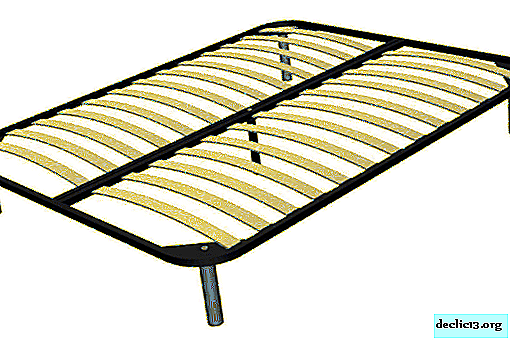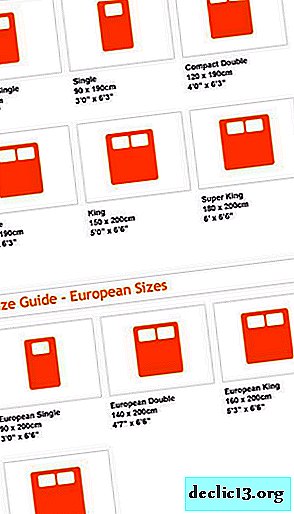How to learn to read English - pronunciation rules and tips

English is one of the most spoken and demanded in the world. Before starting the training, it is worth noting that English, unlike German, has pitfalls that you can stumble upon while reading texts. There are specific rules in English regarding the reading of certain letter combinations. They should be remembered, because without the correct pronunciation, even with knowledge of a large number of words, a person will not be able to communicate with a native speaker.
Training
Before you learn to read in English, you have to master the special exercises for the language. Then it will be easier to pronounce the sounds of a foreign alphabet. It is also necessary to create the right atmosphere. There should not be anything distracting around the student, it is better to put the phone aside, and turn off the TV and radio. The classroom should be tidy and well lit. The fact is that foreign objects and the amount of light in the room affect the educational abilities of the individual. And if you ventilate the apartment before classes, then concentrating on work will be even easier.
Before the start of the lesson, you need to draw up a small plan that reflects topics that you have to work on. Otherwise, the result will be low, since the student will unnecessarily linger on each subsection. And with the plan it is more convenient to track the progress of language acquisition.
The most important rules

The most important difference between English and Russian is that their environment will affect the reading of a letter (or group of letters). It is important to keep this in mind before memorizing pronunciation rules.
The basis of correct reading in English is the ability to distinguish between 2 types of syllables.
- Open - after the consonant is a vowel (for example: take). In this case, the vowel sound is read as it appears in the alphabet, and the consonant, depending on the environment.
- Closed - when there is no sound at all after the vowel or another consonant goes (for example: cut). In this case, the vowel has a different pronunciation, and the consonant also depends on the adjacent letters.
Step-by-step training plan from scratch
Let us consider in more detail all the points for studying the rules for reading consonants and vowels starting with the basics.
As in Russian, English has vowels and consonants. Each letter has a specific pronunciation. It is found in words with open syllables.
| Letter | Pronunciation | Word example |
|---|---|---|
| A a | Hey | Name - name |
| B b | b | But - baht |
| C c | to or from (before "e") | Cup - cap or Ice - ice, since "c" is before "e") |
| D d | d | Dog - Dog |
| E e | and | Me - mi |
| F f | f | Fox - Fox |
| G g | j | Go go |
| H h | x breathing | Hot - hot (the sound is read on the exhale, not as rude as in Russian) |
| I i | ah | Like - like |
| J j | j ' | Juice - jus (the sound is pronounced softly) |
| K k | to gasp | Key - ki (the sound is pronounced on the exhale, much quieter than in the native language) |
| L l | l | Like - like |
| M m | m | My - May |
| N n | n | Nest - Nest |
| O o | long about | Box - boxing (a long “o” with lips rounded at the end of the sound, it sounds almost like a smooth oh). |
| P p | n breathlessly | Pen - pan (consonant as if flies out with a stream of air, pronounced not as loudly as in Russian) |
| Q q | to' | Qwerty - Quotes |
| R r | p "american" | Rocket - rocket |
| S s | c or z at the end of a word | Sun - Rose San - Rose |
| T t | t | Tip - type |
| U u | 'Yu | Tune - tune (in front of u an extra d is usually pronounced, as if a dividing sign is in front of it, it reminds the word "blizzard" in pronunciation). |
| V v | at | Violin - wilin |
| W w | at | Wolf - Wolf |
| X x | cop | Box - boxing |
| Y y | and | My - May |
| Z z | s | Zebra - Zebra |
But not in every case the reading corresponds to what is presented in this table. Let's take a closer look.
Consonants in English are in most cases read as in the presented table. There are a number of letters that in a certain position will represent a certain sound.
| Combination | How to pronounce | Usage example |
|---|---|---|
| age | age in shock position or age in non-stressed | Hage - Page, Language - Landwich |
| au or aw | oh long or oh | Austria - australia, Law - Lo |
| er | In the shock position it is pronounced as e, in the unstressed position as e | Detter - Bete, Her - Hyo |
| gh | Don't pronounce at all | Night - Night |
| Ssion, sion, cial, tion | shl | Special - Special, Mission - target, Position - position, Version - vertex. |
| wa |
| Want - wont, wake - wake |
| wh | x | Who - hu |
| ck | to | Black black |
| kn | n | Know know |
| sh | w | She shi |
| ch, tch | h | Catch Cache, Champagne Champion |
| th | Something between s and f | Think Fink or Sink |
| ph | f | Photo photo |
Vowels are harder. For each position and for a different environment, there are certain rules for reading vowels. There are 6 vowels in English. Let's analyze each.
| Letter | Pronunciation Options | Examples |
|---|---|---|
| A | hey - in the open syllable | Lake - Lake |
| e - in a closed syllable (called a frog, because the mouth opens, like a frog) | Map - Map | |
| and short - in a closed syllable that ends in r | Car - ka | |
| o - in combination with "ll" and "u" | Tall - tol | |
| O | oh - in the open syllable | Home - Home |
| oh short - in a closed syllable | Boss - Boss | |
| o - in combination with "r" | Horse - haw | |
| y - in combination "oo" | Food - Food | |
| ay - in combination with "w" | Now - wow | |
| oh - in combination with "y" | Boy - fight | |
| U | y - in the open syllable | Blue - Blue |
| ʌ - in a closed syllable | Cup - cap | |
| ё - in combination with "r" | Hurt | |
| E | and long - in an open syllable, as well as in combination with "e" and "a" | He - hee, meet - mit |
| e - in a closed syllable | Leaf - Leaf | |
| ё - in combination with "r" | Her - hyo | |
| I | ay - in an open syllable | Fine - file |
| and - in a closed syllable | Big - Big | |
| ё - in combination with "r" | Girl - Gel | |
| Y | ay - at the end of a word | Cry - edge |
| e - at the beginning of a word | Yellow - eelou |
In order not to memorize the pronunciation of each word, you need to learn how sounds in a certain position are recorded in transcription. Then, with further study, you can easily look into the dictionary and find out the correct pronunciation.
Video lesson
Benefits of which authors to use
Ideally, of course, it is better to buy foreign literature from publishers such as Cambridge or Oxford. Russian authors can be used, but with caution. Most often, there are many mistakes in domestic textbooks. You should not use Soviet manuals, as there are a large number of inaccuracies in pronunciation.
Useful Tips

When you learn to pronounce words correctly, do not memorize their translation right away, otherwise the load on the brain will be too large, which will not be useful. In the process of mastering the language, it is recommended to use various Internet resources for listening to English speech by ear.

















